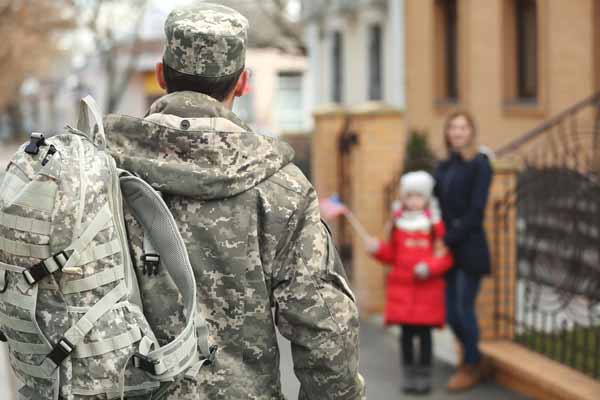A kind, generous and good person died recently. Her name was Sara Beaty. Sara’s husband, John, was a career military man before the family returned to Dallas, North Carolina more than two decades ago. Sara stood by her courageous husband, an Air Force pararescue veteran of more than twenty years. Among his jobs was to recover downed pilots in dangerous areas, even deep in enemy territory. These courageous men are deservedly respected and admired. But what about their wives and children? Sara and many strong women like her have held their families together while their husbands served our country with honor and distinction. They are our other heroes.
When I was in Vietnam in 1968 my wife Carla and our infant daughter, Anna, also lived in Dallas, or in the countryside nearby. In October I wrote to my mother and asked if she would order flowers for Carla’s birthday from Rhyne’s Florist on the Lower Dallas Road and have them delivered to Carla’s parents’ home on Kiser Road. It never occurred to me that the Department of Defense contracted with taxi companies to deliver telegrams advising families that their sons or husbands or brothers had been killed in action and wouldn’t be returning home as they had so bravely proclaimed before getting on the planes that carried them to Southeast Asia.
In my mind I can see my young wife holding our daughter as the cab turned off Kiser Road and onto the long, gravel drive that led to her parents’ rural home. She says she returned Anna to her crib and stood by the door with quivering lips and tears running down her cheeks as she braced herself for the gut-wrenching news.
But it was flowers for her birthday, of all things, that the cab driver was carrying. The fear and grief quickly turned to anger at her incredibly stupid husband.
My grandmother’s sister was named Dixie. I naturally called her Aunt Dixie. Her husband was my Uncle Frank, who was a surrogate father to my father and more like a grandfather to me. When I was very young I loved to go to Aunt Dixie’s house and eat with my cousins, so many I could never count them. Aunt Dixie and Uncle Frank had nine children and countless grandchildren. She cooked in pots that were as big as trash cans, mostly beans and cornbread. I remember sitting on their front porch in Ranlo one holiday weekend, four rows back from Rex Mill #2. It was either Memorial Day or the Fourth of July, in the early 1950s. We had eaten our fill at Aunt Dixie’s table and were enjoying watermelon on the front porch. My father was playing a guitar and someone was picking a banjo. My grandmother, Aunt Dixie, and Uncle Frank were sitting in rocking chairs. As we sat there I noticed that they seemed sad, and I later asked my father about it. He said they were remembering their oldest son, who was killed in World War II. He was just a little older than my father, and he played the banjo.
For the heroes left behind, the grieving parents, the wives and children, brothers and sisters, sons and daughters, the pain never fully subsides. Memorial Day thus comes with stark memories that are deeply painful. As we remember those who gave the last full measure for their country—and we should—let’s also remember the people who loved them and who love them still. The sacrifices they have made are impossible to measure and harder still to describe, reminding us that freedom is never free. Its price is the blood of our brave men and women in uniform and the profound sacrifices of their families.

